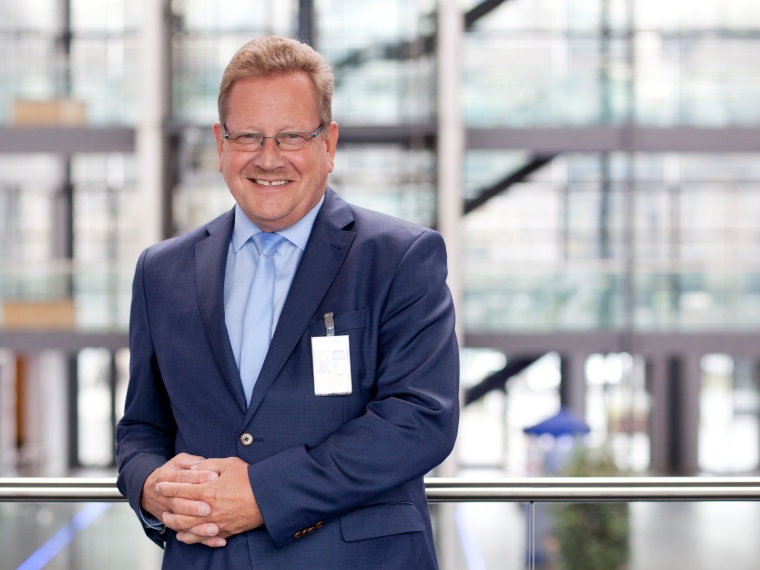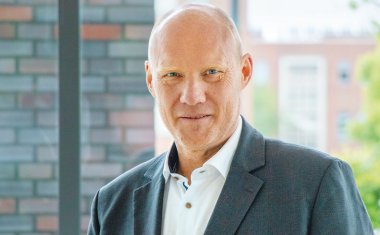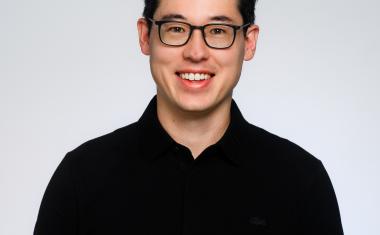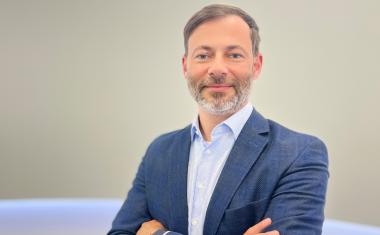"Airports Have Always Been Targets for Terrorism”
Fraport operates one of the most important air traffic hubs in Europe.
The airport’s success is also based on stable and modern security management. Erich Keil has over 40 years’ experience in criminal investigation, security and management/executive work. Most recently, he was head of Corporate Security at Fraport. Since 1st of April last year, he has been head of the Airport Security Management division and Chairman of the Board at FraSec Fraport Security Services.

FraSec is a wholly-owned subsidiary of Fraport. With almost 4,000 employees, FraSec is one of the largest airport security companies in Germany. FraSec has its headquarters at Frankfurt Airport. The company currently operates as a specialist in security and services at Frankfurt/Main and Stuttgart airports, and will soon be doing the same at Berlin’s Tegel, Schönefeld and Brandenburg airports. Our Scientific Editor, Heiner Jerofsky from GIT SECURITY, asked Erich Keil about his new duties, current developments and security.
GIT SECURITY: Your role has changed. Since 1st April last year, you have been head of the Airport Security Management (ASM) division and Chairman of the Board at FraSec. Can you briefly describe your new role as head of the ASM division?
Erich Keil: ASM is a division that carries out operational services relating to aviation security such as passenger and luggage checks, airport security and access control services. ASM employs some 880 employees in total, of which more than 550 are in passenger and luggage checks alone. By the end of this year, all staff will be transferred to the “FTU” (Flight Operations, Terminal Management and Corporate Security).
Based on integrated involvement, ASM is assigned directly to FraSec. A wholly-owned subsidiary of Fraport, FraSec is one of the largest airport security companies in Germany. What services can the company provide?
Erich Keil: FraSec will continue to be the security service provider for Fraport. The plan is that there will be no further build-up of security staff at the parent company Fraport. In the future, security staff will always be replaced by the subsidiary FraSec. This means that, in addition to the legally regulated tasks of airport security, FraSec will also perform the access control services as soon as Fraport is no longer able to do this itself. FraSec already carries out all the tasks relating to staff and goods checks on behalf of Fraport. In Frankfurt, about 1,300 people are also currently working in the area of aviation security. And our company also has to carry out a significant portion of other services.
Having worked in managerial positions within aviation and airport security at Frankfurt Airport for decades, you have a wealth of experience. How have you adapted your security philosophy to the constant changes in the situation and what are your biggest challenges at the moment for ASM and FraSec?
Erich Keil: Well, one’s own philosophy is, of course, shaped by the requirements placed on an airport or a service provider by law or by the authorities. My own philosophy has always been that the tasks set must be completed with the highest possible competence in close coordination with the various airport departments and the relevant authorities. In this respect, you are right to ask that question because one’s own ideas always have to be adapted to the respective security situation.
Preparations for setting up the new Berlin station are already in full swing at FraSec. Where will the new employees work and which specific services are they intended for?
Erich Keil: Their main tasks will be checking staff and goods, issuing ID cards outside regular working hours, and access and patrol duties, with and without a vehicle.
FraSec is sharing the airport security work in Berlin with the security service provider Securitas Aviation who has been operating there for several years. Will you work together or are the tasks split?
Erich Keil: The airport operator has defined how the tasks will be allocated between the two providers, but both companies were involved in the relevant discussions beforehand. It has been agreed that the companies will make sure the two persons responsible on the ground will cooperate. However, there are no plans to mix personnel from the two providers. One of the reasons for this is the new Employee Transfer Law.
Passenger and hand luggage checks are an important part of work at the security checkpoints. The screening devices are getting more and more technologically sophisticated and can show many suspicious substances on the screen. But the images must be correctly interpreted. How do you make sure this happens and avoid incorrect interpretations?
Erich Keil: Within the scope of airport security, not only are screening devices used, but the quality of them is now, of course, increasingly optimised. In Berlin, we have a system called CASRA, which is used to provide our staff with the ideal conditions for interpreting X-ray images. On top of that, we now use explosive detection devices (or ETD devices).
Passengers, employees and business partners expect a high standard of security. Will you be using body scanners more in the future too?
Erich Keil: Airport security does not currently use any body scanners. These are only used in aviation security, i.e. for passenger checks.
If necessary, explosive detection dog teams certified by the Federal Aviation Authority (LBA) are also provided. What experience do you have in using dogs?
Erich Keil: As you are no doubt aware, explosive detection dogs have been used in Frankfurt Airport for years. In this respect, we have a wide range of experience in using these teams, which are certified by the LBA. At the moment, however, it has not yet been determined if, or when, such dogs or guard dogs will be used.
Responsibility, commitment, thoroughness and friendliness are important characteristics for security staff. How and through which measures do you achieve this? Is a fair pay according to a collective labour agreement offered?
Erich Keil: You have already mentioned the most important characteristics that our employees must have. In this respect, there are already components within basic education that address precisely these topics. The fact that the employees now have relatively high hourly wages supports the whole thing, of course, because we have the ability to recruit staff that are better qualified for this kind of work. We pay according to a collective labour agreement and we offer our employees an excellent basis for shaping their lives.
How would you assess the current security situation at German airports and what are your wishes and goals for the future?
Erich Keil: Right now, we have a security situation that has never existed before, not only in the public areas of airports, but wherever larger numbers of people gather. However, airports have always been targets for terrorism, because it is a way to attract the greatest amount of attention all over the world in the shortest possible time. All of this, of course, is supported by modern, very fast social media. This is a burning issue and I am very pleased that in the new Aviation Security Act (LuftSiG), legislators have also implemented a reliability check for all operatives involved in airfreight. For the future, I wish we could be spared from attacks at airports around the world. My goal is to continue ensuring a high standard of security for our airports.
Thank you for your situational assessment and the insights into your important job.










